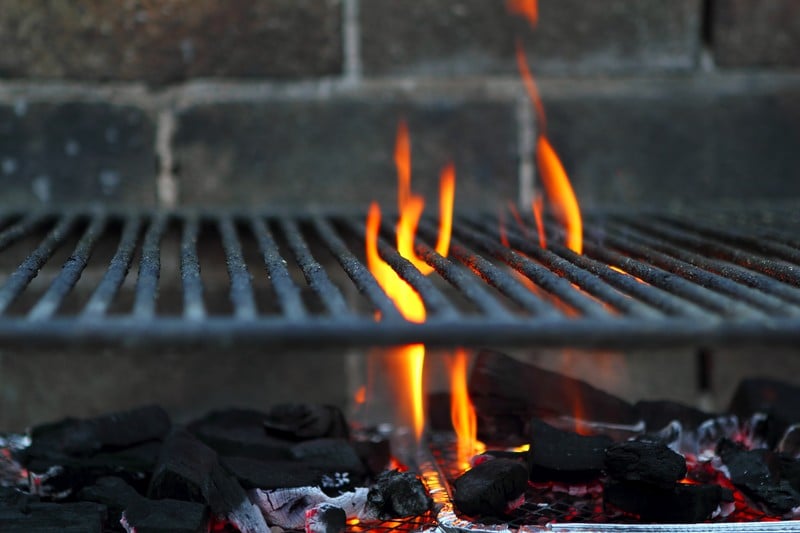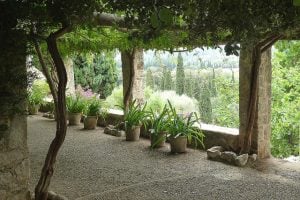Best BBQ fuel
As unreliable as our British weather maybe, most of us like to cook outdoors on the BBQ at every available opportunity. This may be the time that you are planning to buy a new barbecue, or just considering increasing the range of things that you cook. Whilst you can get away with lighting a bag of pre-light coals and hoping for the best with a few sausages and burgers, if you want to get the best from your barbecue then a little more understanding is required.
I love to barbecue. There is a feeling of satisfaction that comes with knowing that the fire is burning well and that you are in control of the proceedings. Being in control is what BBQ is all about. If you know how the variables such as fuel and heat interact with any given ingredient, then you can cook just about anything. So let’s start at the beginning.
Best BBQ fuel – which to use?
GAS
When I talk about BBQ and cooking outdoors I tend to mean cooking over charcoal. But that is just my personal opinion and many people opt for the ease, not to mention lack of mess, of a gas burner. So, cooking with gas? Convenience, control and cleanliness. Removing flavour from the equation, as you can add wood to gas or charcoal for smoky aromas, what gas gives you is control over the heat at the turn of a dial. It is also far easier to clean. On the downside, it will not burn as hot as charcoal so won’t sear meats particularly well. With no cleaning, and no messing about with dirty coals, you can reach temperature far more quickly. With charcoal not only do you have to wait for the coals to heat up, but because of that hotter burn you often have to wait for them to cool down somewhat too. The initial expense of a gas barbecue will be far more than a charcoal grill.
Verdict
If what you want is a way to cook outdoors for family and friends with little fuss and a lot of reliability, then you may prefer the slightly more sterile choice of a gas barbecue. Many of the pros do and almost certainly most of the restaurants.
CHARCOAL
For most diehard BBQ enthusiasts, the real conversation is about which charcoal to use, and perhaps a nod or two to the subject of wood. For me, cooking over charcoal is what BBQ is all about. Getting down and dirty with it and playing with fire. It makes food taste good, requires more than a little flair and artistry, and the whole procedure is just fun.
Charcoal for burning comes in two main forms; lumpwood and briquette. Often people will choose lumpwood based purely on the fact that it is more natural. On discovering the benefits of briquettes, they can often be found switching allegiance. I did and am guilty as charged.
Lumpwood charcoal is natural charcoal that is still in the shape of the wood pieces burned to create it. It will burn to nothing, and fairly quickly at that. The bags can be full of dust or small pieces which make an even burn with plenty of air spaces far less likely.
Lumpwood charcoal burns more quickly than briquettes, so to sustain a fire for any period of time you will need to add more. If all you want is a really casual, quick hot dog outdoors kind of scenario then lumpwood will do just fine.
Briquettes tend to get a bad press for being ‘manufactured’ but the fact of the matter is they do the job and they do it well. Being of a uniform size they give far greater control and consistency than lumpwood. They will also sustain a far longer burn, much more suited to cooking for any period of time.
The uniformity of the briquettes means that you can stack them up for lighting, with nice even spaces, and get the fire going easily. You can gauge with far more precision how many you will need.
Not all charcoal briquettes are made equal, so if chemical additives worry you then shop around for some of the more premium brands that will describe exactly what goes into them.
Verdict
If you want to get down and dirty then charcoal is the way to go. If you want to engage with the process, learn as you go, and master something, then even better. Which type you use is down to you, but give both a try before making any rash judgements.
WOOD
Unless you are an avid fan of smoking, or a camp fire enthusiast, then it is likely that you will be using wood for flavour as oppose to fuel. With charcoal or gas as the fuel that provides the cooking heat, wood can be added to bring in those extra nuances of smoky seasoning that BBQ is just not the same without. That said, it is not essential to add wood unless doing full on low and slow southern style ‘cue; it is just an optional addition. Gas may not give you much in the way of extra aroma molecules, but charcoal will go some way to providing depth of flavour. Once you start adding wood into the mix, then you know you have turned the corner into BBQ geek.
Verdict
Using wood for fuel is more of a specialist type of BBQ than everyday outdoor garden cookery. Campfires and fire pits by their very nature burn only wood, and it is entirely possibly to cook food over either. Low and slow smoking, in a smoker, may use only logs but also often runs on charcoal. A built in pizza oven will likely use wood.
We will look at wood, smoking and campfire type cookery in a later post.
Sign up for our emails below, so we can send you blogs on gardening tips, as well as updates on our sales, so you don’t miss out on those garden furniture bargains!









